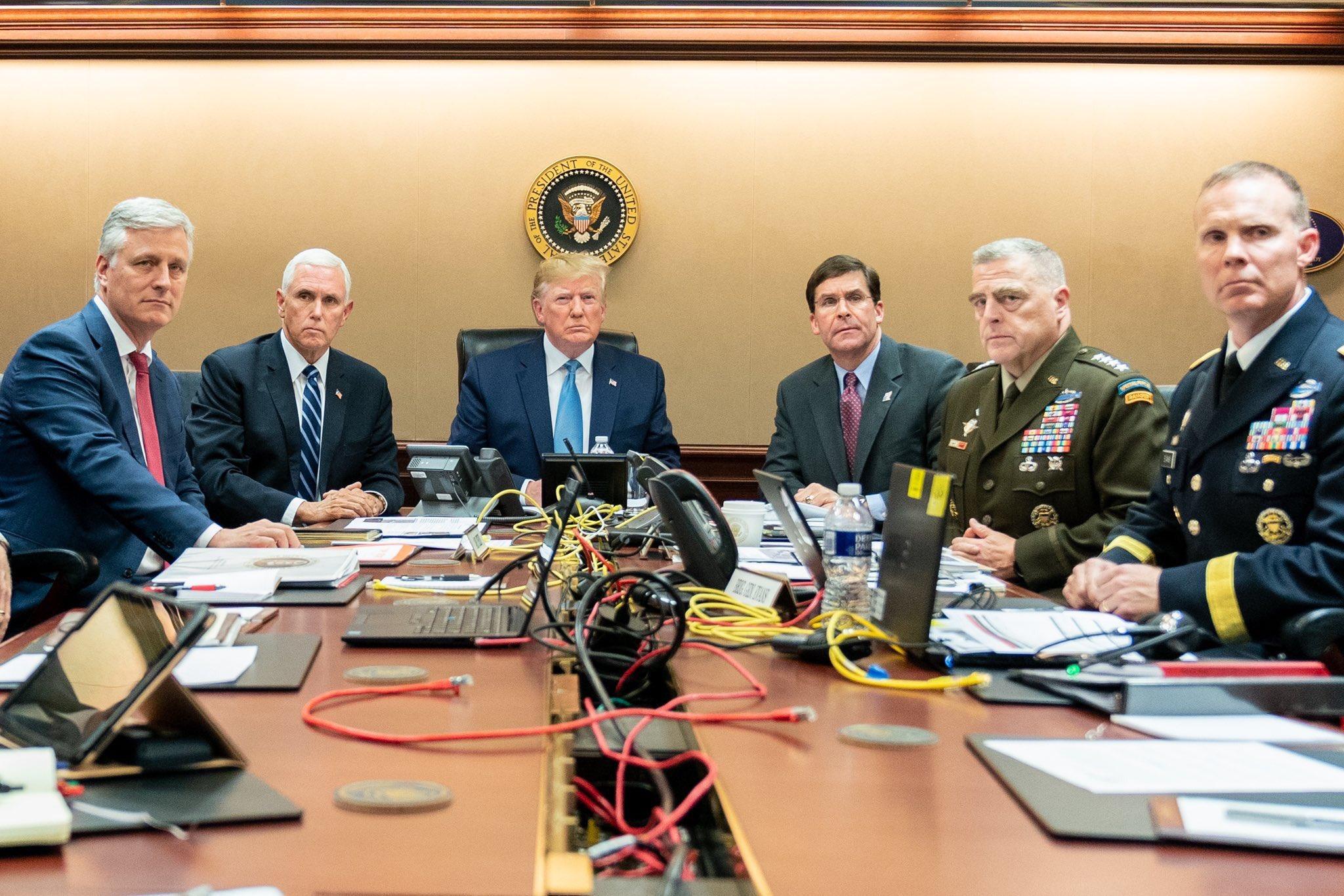The killing of Baghdadi is not Trump’s to claim, and his Syria policy may yet breathe life back into Isis
The president can say what he likes but Isis is already rebuilding, reports Richard Hall

Long before the Isis caliphate met its downfall, before it lost its first battle, when its brutal fighters ruled over a land that spread across two countries and carried out massacres at will, Abu Bakr al-Baghdadi knew he was on borrowed time.
Such are the perils of leading an international terror organisation that a contingency plan for his demise would have been in place for some time. Isis was and is a deeply bureaucratic organisation.
Soon, the group will announce a successor, continue to rebuild and attempt to show its strength with more attacks. None of which detracts from what will be a huge blow to the terror group, both symbolically and practically.
Baghdadi was responsible for untold deaths and suffering: under his command, Isis committed genocide against the Yazidi people and took thousands of women as slaves. It murdered hostages and massacred civilians – most of them Muslims in Iraq and Syria.
Born in the Iraqi city of Samarra in 1971 and radicalised by the US invasion of Iraq in 2003, Baghdadi claimed to have descended from the prophet Muhammad. His background in religious instruction gave him legitimacy in the eyes of his jihadist followers.
Timeline of the Isis caliphate
Show all 19He would prove to be as effective as he was evil. In a few short years, he took the organisation from an underground insurgency to a proto-state that ruled over millions of people.
In a statement delivered from the White House on Sunday morning, US president Donald Trump struck a triumphant tone as he described Baghdadi’s death in grisly detail.
“He died like a dog. He died like a coward. The world is now a much safer place,” he said. “Baghdadi’s demise demonstrates America’s relentless pursuit of terrorist leaders,” he added.
And yet, Baghdadi’s death will not be the end of Isis. In fact, his death comes at a time when Trump’s policy in Syria may be assisting its resurgence.
A chaotic partial withdrawal of US troops from the Syrian border earlier this month precipitated a new round of conflict in northeast Syria, just months after the caliphate was defeated there.
Turkish troops launched an attack against Kurdish forces, a key US ally in the fight against Isis, just days after the Trump administration said the US would not stand in its way.
More than 200,000 people have since been displaced in the fighting. Dozens of civilians have been killed and more than 100 Isis prisoners are thought to have escaped.
The SDF, which worked alongside the US military to defeat Isis in Syria, has slowed its operations against sleeper cells in order to fight Turkey and its Syrian proxies.
The US troop presence in Syria, while small in number, had acted as a deterrence for a Turkish attack against the SDF, which Ankara views as a terror group for its ties to Kurdish separatists in Turkey.
“Eliminating a terrorist leader of this significance and prominence is a major accomplishment for the intelligence and military personnel who made it possible. And it’s a serious step in degrading Isis’s ability to continue radicalising and recruiting,” said Joshua A Geltzer, a former senior director for counterterrorism on the National Security Council in the Obama administration.
“But the group is bigger than Baghdadi, and this operation alone doesn’t come close to overcoming the strategic error Trump made in abandoning America’s top ground partners in the fight against Isis – a fight that’s far from over.”
In its response to Baghdadi’s death, the SDF reiterated that the Turkish operation that Trump gave a green light to has provided “a fertile ground for the revival of Isis and threatens the region and the entire international community”.
Adding to the confusion over his policy in Syria, Trump repeated his desire on Sunday to use US military personnel to protect oil fields in the east of the country, identifying it as a top priority.
After leaving the Syria-Turkey border region to get out of the way of Turkey’s military operation, and crossing into Syria, the US sent troops back into Syria again to guard oil fields.
“We don’t want to keep soldiers between Syria and Turkey for the next 200 years,” Trump told reporters after his address on Sunday. “We’re out, but we are leaving soldiers to secure the oil.”
In these conditions, analysts warn, the dangers of an Isis comeback only increase. As the US retreats further from Syria, operations such as the one that killed Baghdadi will be harder to carry out.
“In the interim, Isis will likely suffer from uncertainty, as the power shift occurs, but ultimately, the extent of instability, vacuums and opportunities presented in Syria and Iraq are of far more advantage than the loss of a leader,” said Charles Lister, senior fellow at the Middle East Institute and author of The Syrian Jihad.
“Perhaps more importantly, Baghdadi’s death gives Trump his best excuse yet to see ‘Syria’ as a job done and dusted. That would be extremely unwise, as this is precisely the time when the hammer should be placed squarely and intensively on Isis’s head, to better ensure that it can’t recover in the way we all fear,” he added.
In the meantime, as the war against Isis becomes less of a concern for Trump, the communities that suffered from the terror group’s rise the first time around will be in the firing line again.
Subscribe to Independent Premium to bookmark this article
Want to bookmark your favourite articles and stories to read or reference later? Start your Independent Premium subscription today.

Join our commenting forum
Join thought-provoking conversations, follow other Independent readers and see their replies